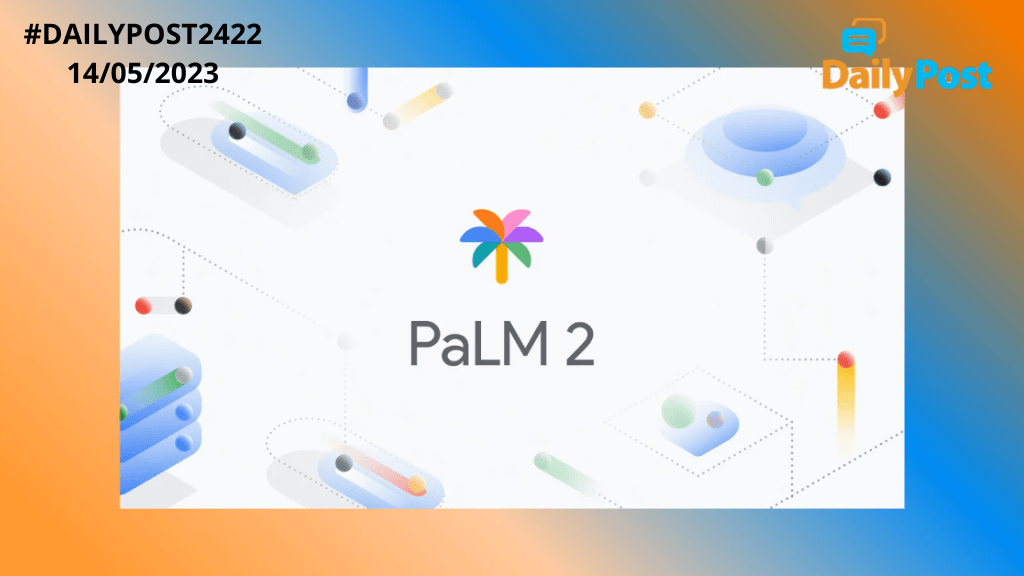DailyPost 2422
GOOGLE’s PaLM 2
Google’s acquisition of DeepMind in 2014 heralded in some ways the nascent age of Artificial Intelligence, AI. It was expected that Google would lead the way as it has done in a variety of technologies. Not getting into the milestones of Google DeepMind, OpenAI was created in 2015 to delve, research and productise the same technologies but with the different mindset working on a different business model. The GPTs started to flow and it has yielded way beyond the best scenario results, demonstrated in the product; ChatGPT, which has literally taken over the world. This is not to say, that Google and other leading lights are far behind in the race.
It is for this reason that we have updates of products and use cases with an astonishing regularity in this field. Large Language Models, LLMs are here to stay and define our world. AI race is bound to continue and hot up as we move further. The bar would be consistently raised. Google with its PaLM 2 is clearly upping the ante. It is immensely creative and likely to impact many industries having been built in multiple stages; five different stages to be precise. It can thus power every single application and has even a lightweight version called Gecko.
Gecko is built to run natively offline on your phone. This would mean that we are going to be getting large language models embedded into other applications which work offline. PaLM 2 supports a hundred languages and has the ability to code as ChatGPT. It is said that it can support coding in different languages. This can turn out to be a major breakthrough for Google and as we not sure if ChatGPT can actually deliver this nature of coding. PaLM 2 has immense capability for fine tuning and this happens to be one of its major strengths.
It’s version focused on medical research and diagnosis holds huge promise for the world. Med-PaLM 2 is medical avatar of PaLM 2. The capability to provide medical reports and diagnosis is really impressive and it is well known that this kind of stuff is very difficult to diagnose. It has been reported that medical errors account for 251,000 deaths annually. Being such a big problem, Google is trying to fix with the invention of this tool. It claims 9 times reduction in inaccurate reasoning and present performance of the tool has reached expert levels. Being multimodal, the effectiveness is greater. Who would you bank on; a doctor who has seen a hundred thousand patients or an expert doc tech tool that has seen a hundred million patients? The answer to this question would be our future in an AI enabled world.
FINE TUNING OF LLM MODELS WOULD ACTUALLY MEAN FINE TUNING HUMAN EXISTENCE.
Sanjay Sahay

